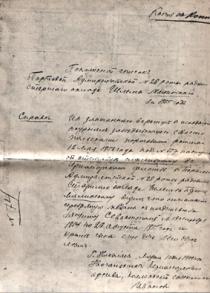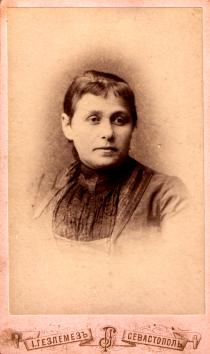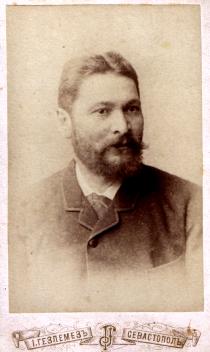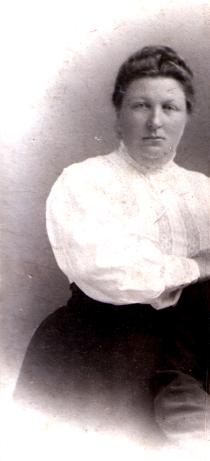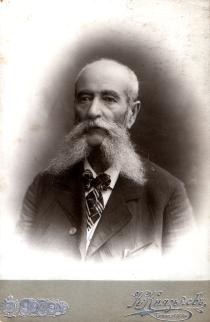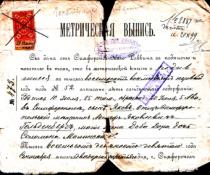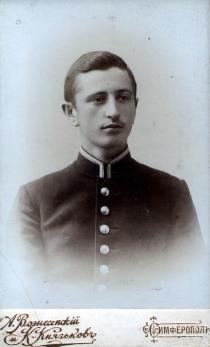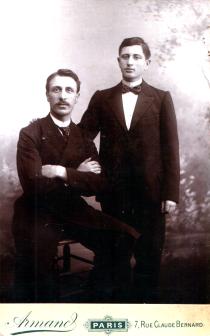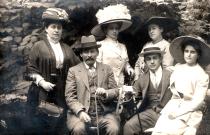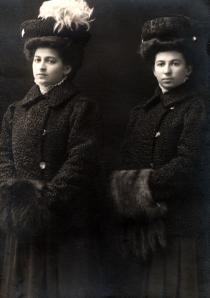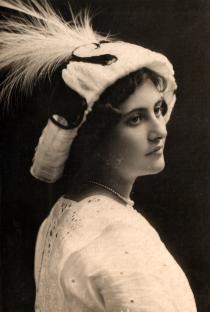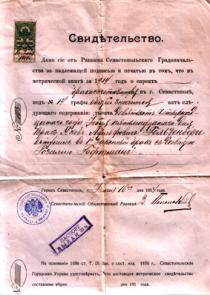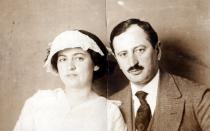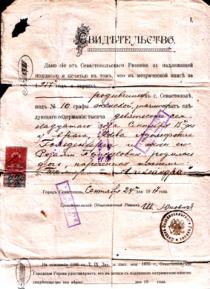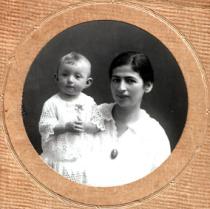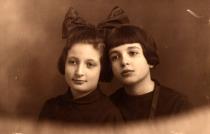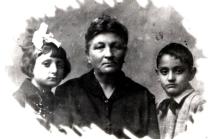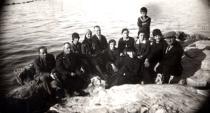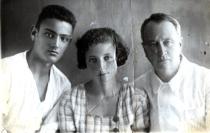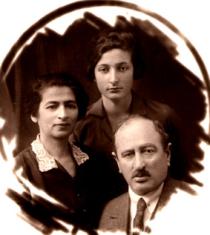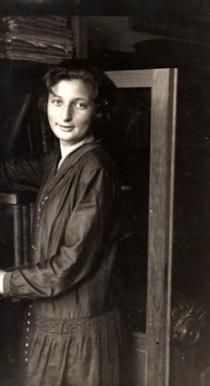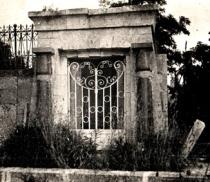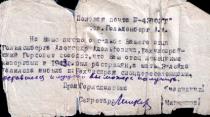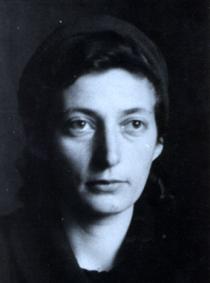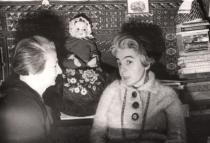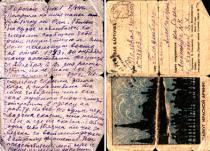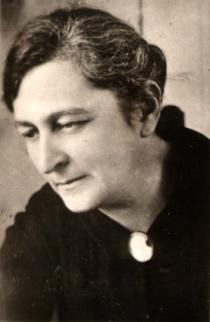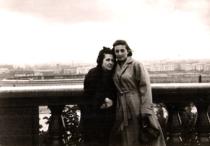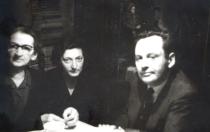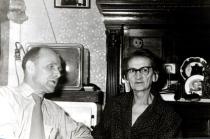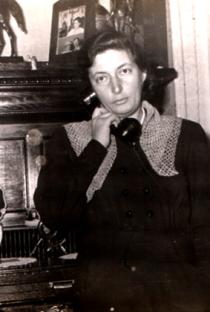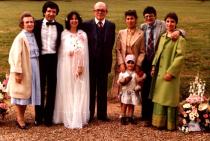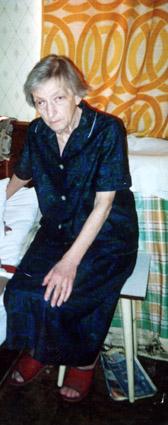This is my mother Rosalia Goldenberg and my father Jacob Goldenberg shortly after getting married.
The picture was taken in Sevastopol in 1916.
My father Jacob Goldenberg was born in 1881 in Simferopol. He lived in Simferopol before finishing lyceum in 1899. The same year the widowed grandmother sent my father to Paris to his elder brother Moses (Michel) Malinskiy.
My father studied at Sorbonne university at physics and chemistry department. He graduated in 1900 and entered medical department. He graduated medical department in 1909. Thus, my father managed to graduate from two universities- scientific and medical. In the period of 1905 - 1909 he specialized in cutaneous diseases and syphilis, cutaneous tuberculosis.
He was also involved in science. In 1909 he went back to Russia. He worked in Saint-Petersburg hospital. In 1911 he took an exam in Kazanskiy university to start practicing medicine. In 1912 and 1913 he worked as a doctor in venereal and urological department of Simferopol ambulatory. He equipped his office with diagnosis devices at his own cost. Father was not religious.
To begin with, the family that brought him up, did not stick to any religious traditions, and cognition of natural sciences did not bring him to religious self-consciousness. Father was loved by everybody from his surroundings.
He was strict and exigent to me, but still he loved me very much. Father had wonderful sense of humor, he gave everybody nicknames. He called me jokingly a fool. We had an elderly house-keeper. He called her a hex. Some of our relatives were a little bit hoity-toity, and he called her an empress. He was smart , benevolent and willing to help.
Mother Rosalia Geftman was born in 1885. She was a gifted musician, and played the grand piano very well. When mother finished lyceum, her parents sent her to Austria to study at conservatoire in Vienna. Then mother moved to Berlin and kept on studying in Berlin conservatoire.
She was as successful there as in Vienna. She was so deeply immersed in studies that her constitution deranged and she was afflicted with tuberculosis. She still managed to graduate from conservatoire.
Then she went to Northern Italy and treated her tuberculosis. She put on weight considerably and when she came back to Sevastopol she was not slender as she was before. But she still remained beautiful and liked to dress up.
I do not know how my parents met. I think, it was a prearranged marriage, though a love wedlock. They got married in 1914. My mother's parents were religious, and I think their wedding was in accordance with all Jewish rites.
They both were very successful and educated young people. The honey-mooners went to Paris to father's uncle Michel. Father was to improve his knowledge in medicine in France. But his plan remained unrealized as the first world war was unleashed. Parents came back to Simferopol.
He was in the army in Caucasus military field and in 1915 the 10th army. Father was demobilized in 1916, and in Batoumi [about 1600 km to the south from Moscow], he got ill. He had a problem with his legs, and there he was treated with therapeutic mud. Only in 1917 father came back home and my parents could feel themselves a family. They settled in Sevastopol.
Father began to work in the venereal department of the hospital. Then he established a hospital for treatment of venereal diseases. He did a lot in that field and also worked as a advisor for the institute of physical therapy. Father was a remarkable expert in that field. There was also a school by his department. A lot of qualified experts came from that school.
In 1917 my maternal grandfather Pincus Geftman immigrated with his family. All Geftmans left, but my mother. My relatives did not approve of revolution.
My parents refused to leave the motherland. They thought that such educated and prosperous people would do well in Soviet Russia, and besides he did not want to sever with his relatives.
He also was sure that the doctor of such a level would always be in demand no matter who was wielding the scepter.

